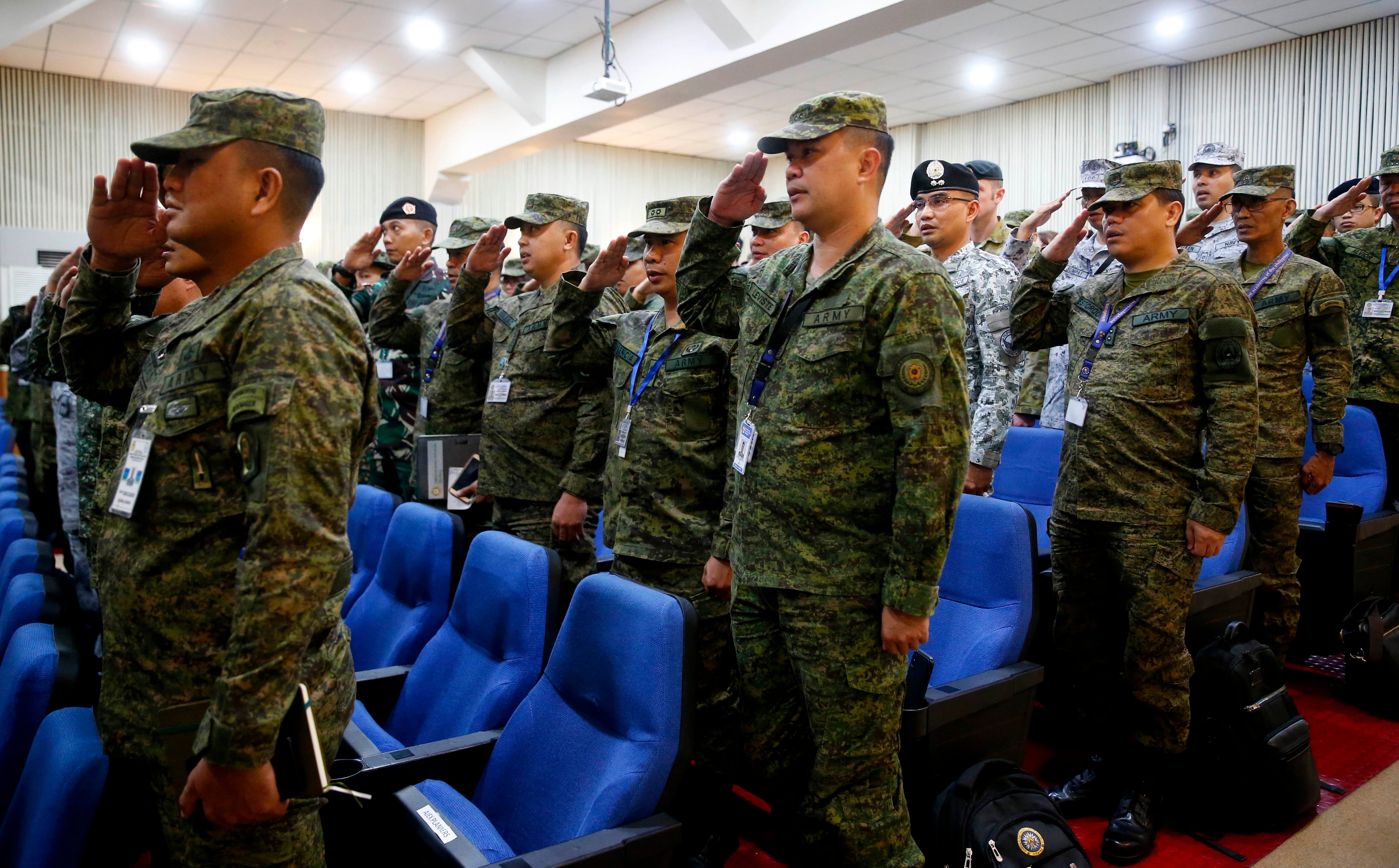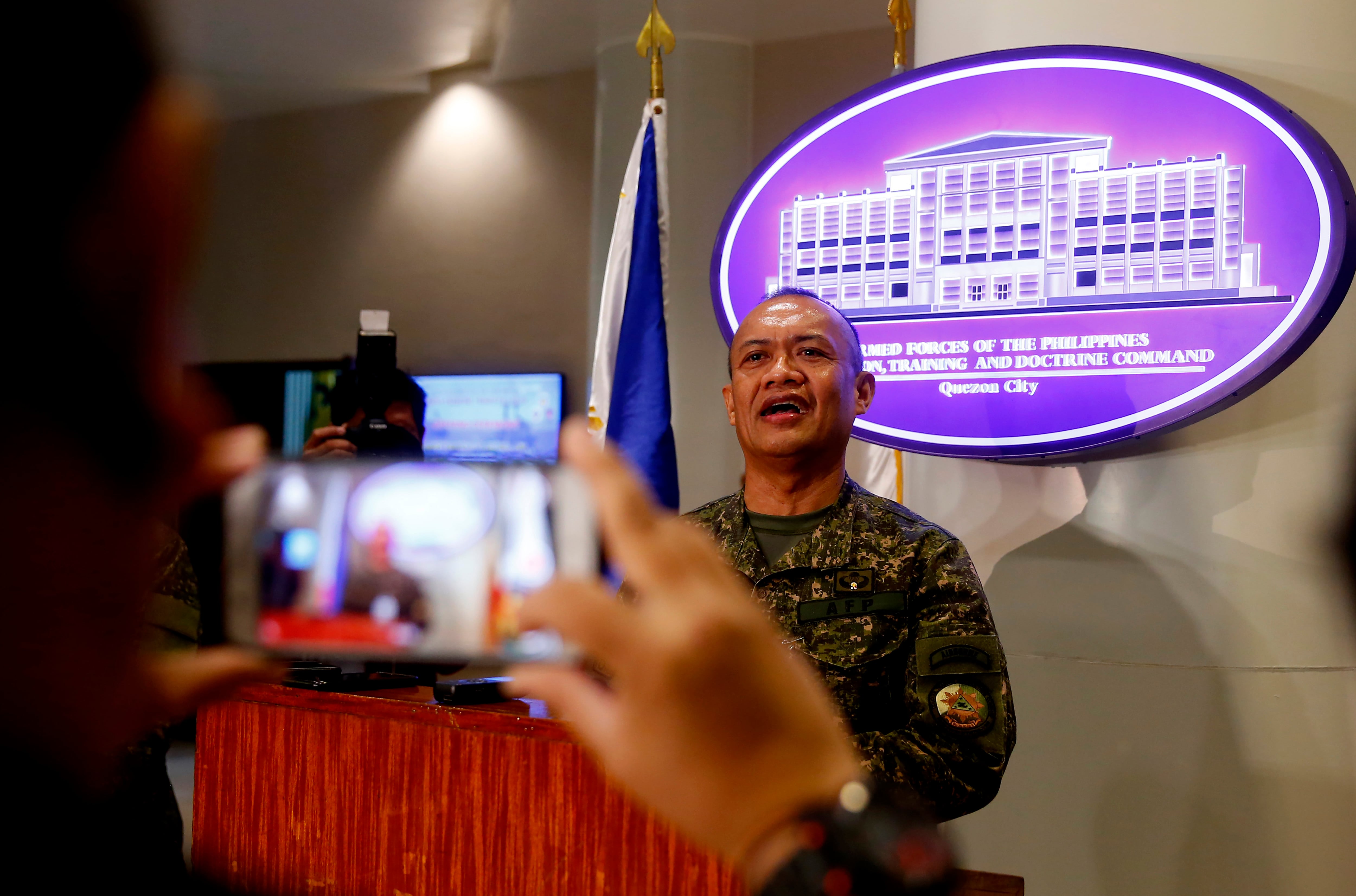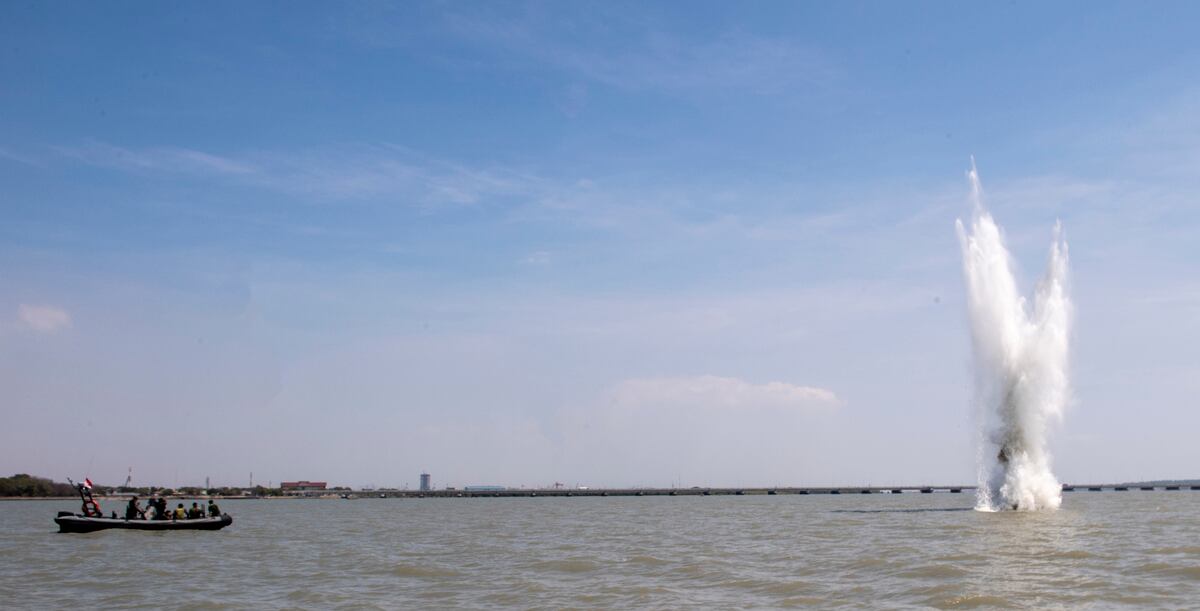BEIJING — This is your weekly look at recent developments in the South China Sea, where China is pitted against smaller neighbors in multiple territorial disputes over islands, coral reefs and lagoons.
The waters are a major shipping route for global commerce and rich in fish and possible oil and gas reserves.
U.S. DESTROYER CHALLENGES CHINESE CLAIM
A U.S. Navy destroyer sailed near the Paracel Islands last week in a challenge to China’s claim to the waters around them.
The operation by the guided-missile destroyer Wayne E. Meyer on Friday demonstrated that the waters are beyond what China can claim as its internal waters or territorial seas under international law, said Cmdr. Reann Mommsen, a spokeswoman for the Navy’s Japan-based 7th Fleet.
China said that its air and naval forces warned the Meyer to leave its waters. A defense ministry statement accused the U.S. of conducting "hegemonic voyage activities" that seriously damage China's sovereign rights.
"China has indisputable sovereignty over the South China Sea islands and its adjacent waters," the statement read in part. "No matter in what kind of proactive way a foreign warship has chosen to pose a challenge, it will not change that fact."
China, Taiwan and Vietnam have competing claims to the Paracel Islands in the South China Sea.
Mommsen said the U.S. warship also challenged Beijing’s requirements that a foreign military vessel must obtain permission or provide advance notification to pass through the waters.
"By engaging in innocent passage without giving notification to or asking permission from any of the claimants, the United States protested the unlawful restrictions imposed by China, Taiwan and Vietnam," she said in a statement.

CHINA, PHILIPPINES TO TALK OIL AND GAS
China and the Philippines are moving forward with a delicate proposal to look into joint offshore oil and gas exploration in and near the disputed South China Sea.
Philippine Foreign Secretary Teodoro Locsin Jr. said Wednesday that the two rival claimants had identified which officials and government agencies would make up a steering committee. The two countries agreed to set up the committee during a visit by Philippine President Rodrigo Duterte to Beijing last month.
Locsin told the ABS-CBN news channel that he and Chinese Foreign Minister Wang Yi will "call the shots," backed by their alternates and a few government agencies including the Department of Justice on the Philippine side.
It is a step forward in a legally complicated proposal to explore and develop potential undersea deposits while skirting the territorial question. The Philippine president could face impeachment if he were accused of breaching a constitutional duty to defend the country's territory and sovereignty.
The committee is to work with a group of oil and gas developers and meet every three months. No date has been announced for an inaugural meeting.
Locsin said the committee will need to determine if there are enough commercially viable deposits to develop. "I haven't gotten or seen a report that we're busting with oil out there, OK?" he said.
Chinese foreign ministry spokeswoman Hua Chunying said that both sides hope that cooperation will achieve substantive progress at an early date.

PHILIPPINES HOLDS MILITARY DRILLS
About 1,500 Philippine military personnel opened two weeks of combat drills on land, sea and air that will include mock interdictions and amphibious landings on two island provinces fronting the South China Sea.
Philippine military officials said the exercises that opened in a ceremony Monday were designed to strengthen the military's capability to defend the country's territory and bolster internal security operations but have nothing to do with the long-simmering territorial conflicts.
Exercise director Commodore Adeluis Bordado said the drills, dubbed "Dagit-Pa," aim to improve the capability of the Philippine navy, air force and army to operate jointly in contingencies. "The three major services have their own language. To improve capability in joint operations ... we have to test how they talk to each other, how they communicate," Bordado said.
Air and sea interdiction drills will be held in a training area in Palawan province, while amphibious landings will take place in another training site in Zambales province, two regions fronting the South China Sea. There will also be a mock airfield seizure in northern Nueva Ecija and live-fire drills in Tarlac, officials said.
China has frowned on military drills in the disputed waters, especially those staged by the U.S. with its allies.
RELATED

MALAYSIA, CHINA SET UP PROCESS TO DISCUSS DISPUTES
China and Malaysia agreed to establish a consultation mechanism to discuss and resolve their differences over maritime issues.
"We have decided to continue to manage our differences on the South China Sea properly, and to work together for peace and stability in the South China Sea," Chinese Foreign Minister Wang Yi said Thursday after a meeting in Beijing with his Malaysian counterpart, Saifuddin Abdullah.
China and the Philippines have a similar body that has met several times but has yet to resolve any major territorial issues.





